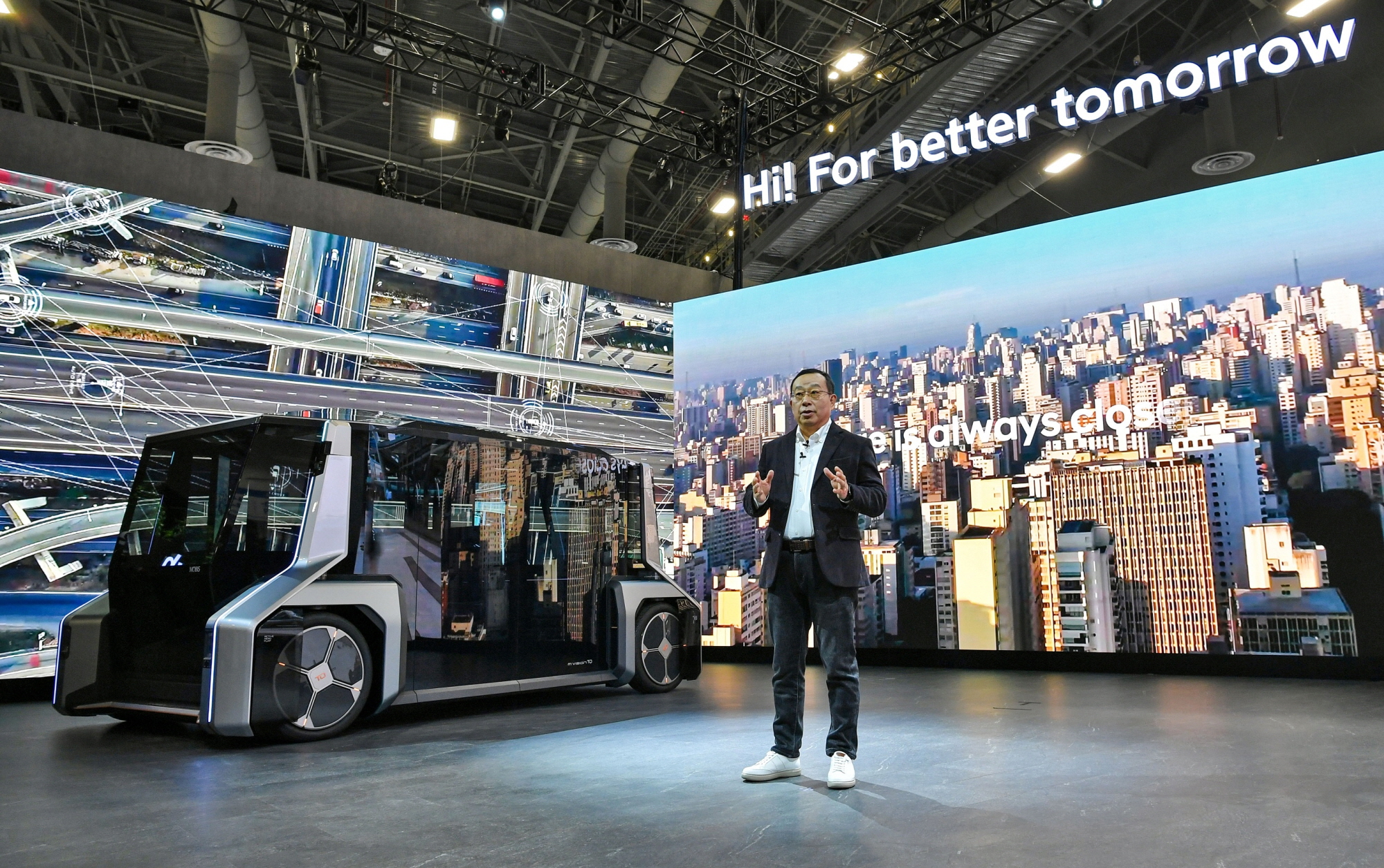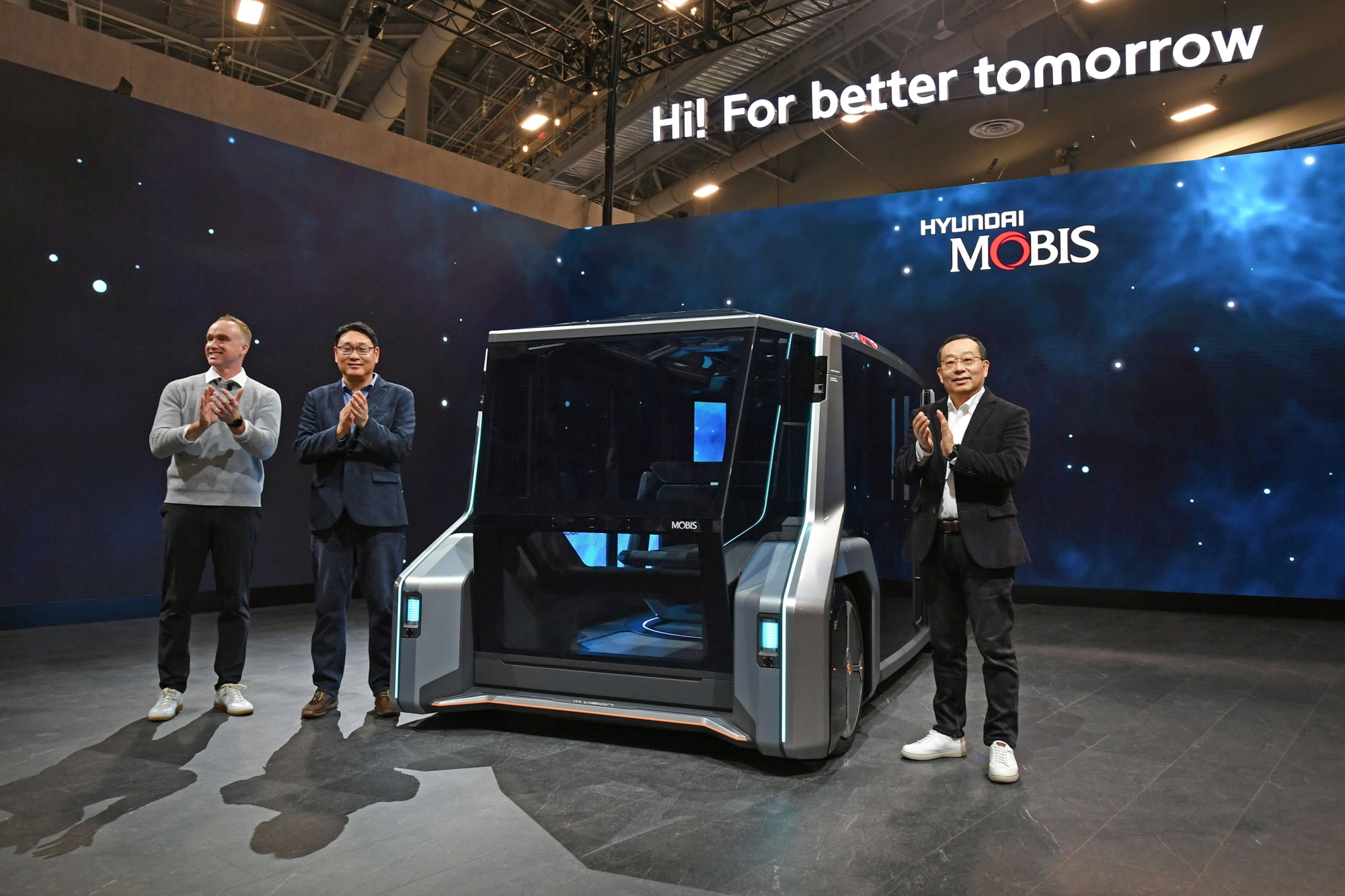
Hyundai Mobis unveiled its ‘New Mobis’ vision at CES 2023, declaring a leap into becoming a mobility specialist company that provides integrated platforms centered around software. The meaning of the company name has also been redefined as ‘Mobility Beyond Integrated Solution.’ This emphasizes the essence of its future strategy, which is to innovate the user experience and provide integrated solutions optimized for customer needs.
On the morning of January 5, local time, Hyundai Mobis held a media briefing at its booth established within the Las Vegas Convention Center. During this presentation, Hyundai Mobis revealed its New Mobis vision, which includes future business innovations and technology strategy directions. CEO Cho Sung-hwan took the stage to emphasize the future growth direction of becoming a mobility specialist company.
The strategy outlines that Hyundai Mobis will leap forward as a Mobility Platform Provider by providing integrated solutions that combine software with optimized semiconductors.
Hyundai Mobis suggests ‘Mobility Platform Provider’ as the core strategy of New Mobis, which refers to a mobility specialist company that provides integrated solutions by modularizing key technologies, such as electrification, autonomous driving, and connectivity, based on the competitive strength of the future mobility industry tailored to various customer needs.
This future growth strategy is well reflected in Hyundai Mobis’s future PBV concept model ‘M-Vision TO’ showcased at this CES. ‘M-Vision TO’ is an electrification-based autonomous vehicle that integrates a drive module centered around an e-corner system, autonomous driving sensors, and communication lighting with an integrated pillar module and battery system.
‘M-Vision TO’ is a mobility solution that can morph the size and shape of the vehicle depending on its purpose, and with wheels that can turn up to 90 degrees, it greatly expands the freedom of movement, allowing for crab driving or zero turns. This provides a significant advantage in terms of versatility for applications like narrow urban driving or cargo transportation suited to the user’s objectives.
Chun Jae-Seung, who is in charge of FTCI, stated, “The future mobility solutions offered by Hyundai Mobis require reliable and stable software and semiconductor technological capabilities,” emphasizing the key competitiveness of integrated solutions lies in software and semiconductors. Hyundai Mobis is currently preparing a comprehensive strategy optimized for semiconductors in future mobility by establishing a dedicated organization for semiconductor development and business.
Hyundai Mobis will also collaborate with global semiconductor company Qualcomm for the development of Level 3 autonomous driving integrated controllers. The two companies’ management teams agreed to pursue strategic collaboration at CES for this purpose. The autonomous driving integrated controller is a key control device necessary for implementing Level 3 autonomous driving, and Hyundai Mobis plans to develop the software platform built into the integrated controller using Qualcomm’s high-performance semiconductors, targeting development by the first half of this year.
Hyundai Mobis has been actively pursuing the development of its unique autonomous driving software platform to supply to global automakers. With this collaboration, Hyundai Mobis has now secured a competent ally in the semiconductor field with Qualcomm, allowing them to expand orders for autonomous driving and ADAS (Advanced Driver Assistance Systems) products for global clients going forward.
Looking ahead, Hyundai Mobis intends to continuously strengthen close collaborative relationships with various partners to secure next-generation mobility technologies. Recently, Hyundai Mobis partnered with Israeli startup Autopia to develop autonomous driving remote support solutions aimed at the Level 4 or higher fully autonomous driving market.

In Sang-jin daedusj@autodiary.kr

